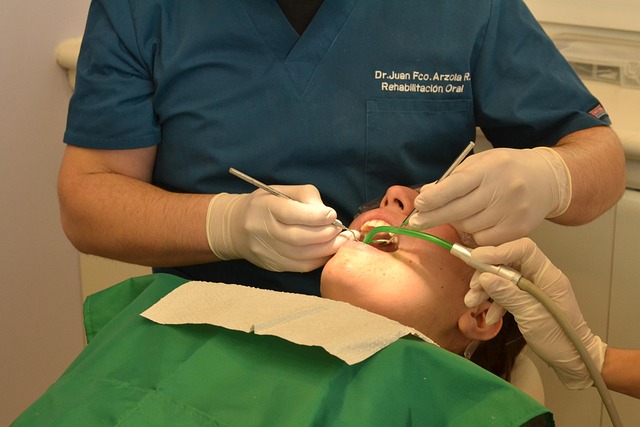Working as a Dentist in Japan – Role Structure, Licensing, and Workplace Expectations
Dental professionals working in Japan may be involved in diagnosis, routine care, and clinic coordination. The roles are ideal for individuals with formal training who can adapt to professional standards, follow organized schedules, and work within cross-functional dental teams.

What dentists are expected to handle during daily operations
Dental professionals in Japan typically manage a comprehensive range of clinical responsibilities that extend beyond basic dental care. Daily operations commonly include routine examinations, preventive treatments, restorative procedures, and patient education. Many dentists also handle administrative duties such as treatment planning documentation, insurance claim processing, and coordination with dental technicians and hygienists.
Japanese dental practices often emphasize preventive care, with dentists expected to provide detailed oral health education and regular maintenance appointments. Specialists may focus on areas such as orthodontics, oral surgery, or periodontics, while general practitioners handle diverse cases including pediatric dentistry and geriatric care. The integration of digital technology in treatment planning and patient records management has become increasingly important in daily operations.
Licensing pathways and documentation for dental professionals in Japan
Foreign-trained dentists must navigate a specific licensing process to practice in Japan. The primary pathway involves passing the National Board Examination for Dentists, which is conducted in Japanese and covers both theoretical knowledge and practical skills. Candidates must first have their foreign dental credentials evaluated and may need to complete additional coursework at a Japanese dental school.
Required documentation typically includes academic transcripts, proof of clinical experience, language proficiency certificates, and various legal documents translated into Japanese. The licensing process can take several years to complete, depending on the candidate’s background and preparation time. Some professionals choose to pursue advanced degrees or research positions at Japanese universities as an alternative pathway to gain experience in the Japanese dental system.
Strategies for integrating into Japanese clinical teams
Successful integration into Japanese dental teams requires understanding both professional protocols and cultural expectations. Language proficiency in Japanese is crucial, as most patient interactions and team communications occur in Japanese. Many successful foreign dentists recommend dedicating significant time to language study before entering the workforce.
Building relationships with colleagues often involves participating in team meetings, continuing education sessions, and social activities outside of work hours. Understanding hierarchical structures within Japanese clinics is important, as junior staff typically defer to senior practitioners and clinic directors. Patience and consistent demonstration of reliability and technical competence help establish trust within established teams.
Types of clinics and expected working environments
The Japanese dental landscape includes various practice settings, each with distinct characteristics and expectations. Private dental clinics, which represent the majority of practices, typically maintain smaller teams and focus on comprehensive patient care. University hospitals offer opportunities for research and specialized treatment but often require academic qualifications and research involvement.
Corporate dental chains have expanded in recent years, offering standardized procedures and potentially different work arrangements compared to traditional private practices. Some dental professionals work in public health settings, including municipal clinics and specialized facilities for elderly care. Each environment presents different patient populations, treatment approaches, and professional development opportunities.
How to navigate the application and hiring process
The hiring process for dental positions in Japan often involves multiple stages, including document screening, written examinations, practical demonstrations, and interviews. Professional networks and recommendations from colleagues or professors can be valuable in identifying opportunities. Many positions are filled through personal connections rather than public advertisements.
Preparing a comprehensive portfolio that includes academic credentials, clinical experience documentation, and examples of continuing education demonstrates commitment to professional development. Some employers may request demonstrations of specific procedures or case presentations during the interview process. Understanding salary expectations and contract terms is important, as compensation structures may differ from other countries.
| Position Type | Average Annual Salary | Work Environment | Key Requirements |
|---|---|---|---|
| General Practitioner (Private Clinic) | ¥6,000,000 - ¥8,000,000 | Small team, comprehensive care | Japanese license, language proficiency |
| Specialist (Hospital Setting) | ¥7,000,000 - ¥12,000,000 | Research opportunities, advanced cases | Additional specialization, academic background |
| Corporate Chain Dentist | ¥5,500,000 - ¥7,500,000 | Standardized procedures, multiple locations | Adaptability, consistent performance |
Prices, rates, or cost estimates mentioned in this article are based on the latest available information but may change over time. Independent research is advised before making financial decisions.
Working as a dentist in Japan represents a significant career opportunity that requires careful preparation and understanding of local professional standards. The combination of advanced dental technology, emphasis on preventive care, and structured professional development creates an environment where skilled practitioners can build rewarding careers. Success in this field depends on thorough preparation, cultural adaptation, and commitment to meeting Japan’s high professional standards. This information serves as a general overview of the dental profession in Japan rather than specific job opportunities, and individual circumstances may vary significantly based on qualifications, experience, and market conditions.
This article is for informational purposes only and should not be considered medical advice. Please consult a qualified healthcare professional for personalized guidance and treatment.




